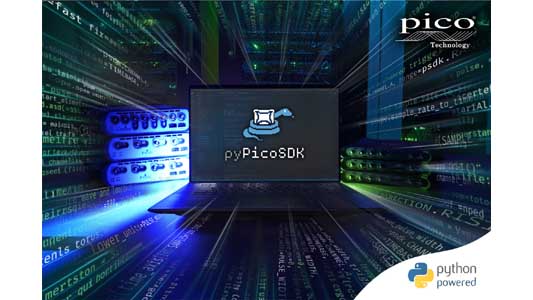Pico Technology, the global leader in PC-based oscilloscopes, has officially released pyPicoSDK, a new Python package designed to simplify the use of PicoScopes. Built on top of the existing PicoSDK, pyPicoSDK allows engineers, developers and hobbyists to create Python scripts that control their PicoScope devices more quickly and easily.

The new library is an extension of the picosdk-python-packages, bundling all direct driver functions into a single group. It also includes built-in helper functions that reduce the complexity of many PicoScope operations. This design reflects Python’s core philosophy, enabling users to build solutions with speed and simplicity.
“We created pyPicoSDK to make it easier for our customers to harness the power of Python for their data acquisition and analysis needs,” said James Niblock, Director of Business Development at Pico Technology. “This new wrapper embodies our commitment to providing powerful, accessible tools for the engineering community.”
Key Features of pyPicoSDK:
- Modern Toolset: Unlock more from your PicoScope with less development overhead. Get code completion, type hints and documentation directly in
your IDE with docstrings included in the codebase. - Ease of Use: Designed for beginners and experienced developers, with a comprehensive Getting Started guide, full documentation and
real-world examples. - Expandability: Built to integrate with the wider ecosystem of Python packages, including built-in support for NumPy.
- Current Compatibility: The initial release supports the PicoScope 6000E Series and PicoScope 3000E Series oscilloscopes, with more device drivers to be added in the future.
Pico Technology encourages users to contribute to the project by submitting pull requests on GitHub. For support or to report a suspected bug, please email support@picotech.com.
For more information and to get started with pyPicoSDK, visit the Pico Technology GitHub page. Updates and news can be found here.












